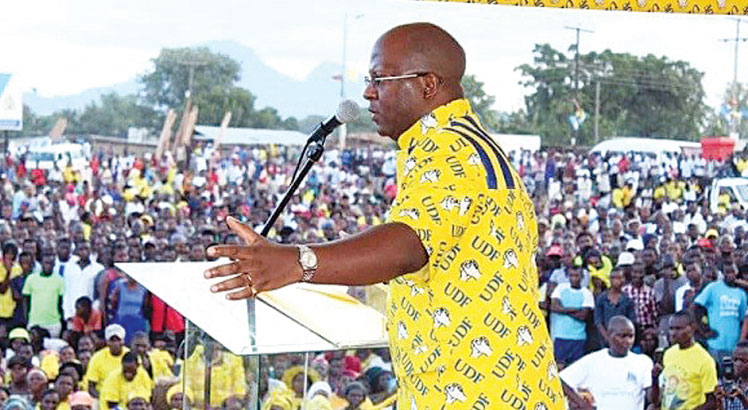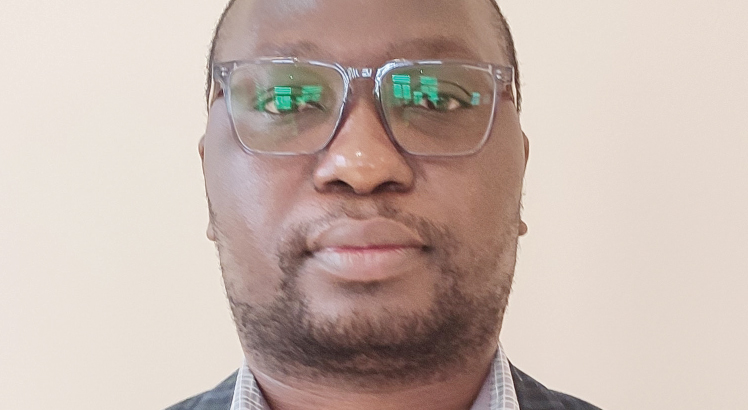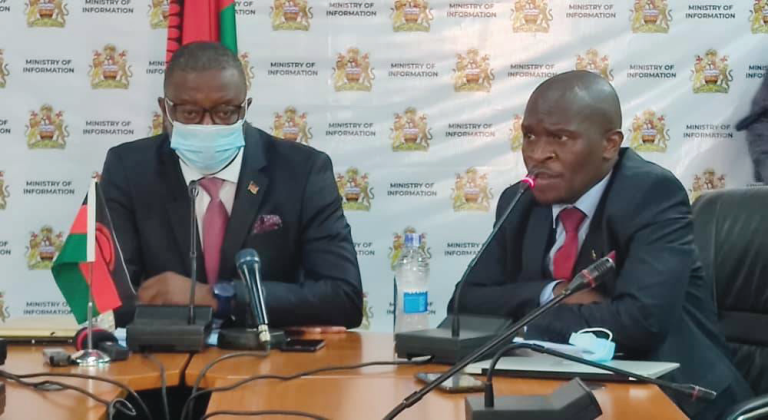A dark horse
Saulos Chilima finally launched his United Transformation Movement (UTM), and by extension, presidential bid.
Last Sunday at Masintha Ground, one day say, he did so with a bang. He pulled no punches, outlined his vision clearly and left in doubt he is going to be a big factor in this election, one way or another.
He is now the most talked over politician in the country; dominating social media and other ordinary conversations.
He is not, though, by virtue of his energetic entrance into the political fray, a front-runner. If anything, in spite of the euphoria and momentum, he has so much ground to cover.
The good news for his camp though is that this is the most uncertain election this country has ever held. There are no front-runners. No clear favourites. He enters as a dark horse, capable of causing an upset, but without any guarantees of victory.
That can’t change with one or two rallies. For Chilima to win this election, he needs to push for a seismic change in the voting patterns. That means not just winning the urban vote in which he appears poised to win based on sentiment in various talking platforms. He also needs to break through traditional strongholds currently dominated by the major parties.
It won’t be an easy task. It’s also not an impossible business. The world is changing, Chilima’s hope must be that our world has changed so radically from the last time we went to polls and his credentials and messaging will court him enough votes.
In the absence of credible opinion polls, it is hard to tell how Chilima will fare.
But if there was anything that should hearten his supporters is that this country has previously demonstrated that it can change. The recent by-elections victories by fellow opposition Malawi Congress Party (MCP) demonstrates that the ruling party has vulnerabilities.
But Chilima knows more than anyone that the DPP is an electoral winning machine. Add to that, with President Peter Mutharika desperate to retain power amid serious allegations of fraud in his government, the ruling party has enough motivation to do all it can to win next year’s polls.
At this stage, it appears outright inconceivable, even in the absence of credible opinion polls, that former major contenders, People’s Party (PP) leader and former president Joyce Banda and United Democratic Front (UDF) youthful leader Atupele Muluzi, stand any chance of winning the elections.
But Mutharika and Malawi Congress Party (MCP) president Lazarus Chakwera will not be push overs. They both have more solid bases to build their electoral challenges than Chilima’s untested coalition/movement.
Chilima has left DPP along with some seasoned campaigners, but some have tainted backgrounds that make mockery of his transformational agenda. His quota system message was a direct invitation to the Northern Region vote. He hopes to tap into all regions, but without a proven constituency to form his base, he is also very vulnerable.
But such thinking is premised on old voting lines. Such thinking could not have predicted in 2014 that the country would witness, for the first time, a sitting head of State suffering an electoral defeat in spite of the powers of incumbency. Such thinking couldn’t predict DPP will lose five out of six seats in the last major by-elections.
Our politics have certain patterns which are dynamic enough to always pull surprises. Saulos Chilima is not the first Vice-President to be ostracised from power. But he is different. He seems to have read the script and prepared himself for the inevitable.
On whether he has done enough to build a movement that can win an election in its maiden electoral outing is nobody’s guess. His hope is that he will run a brilliant campaign that can swing votes to his side. Last Saturday he sent warning shots. As a consequence, the State machinery has been used, predictably to squeeze him as powers that be were rattled. His security has been trimmed. And more might follow.
But his entrance in this election means he has already altered the course of this election. Next year in May, we will find out just how much.





